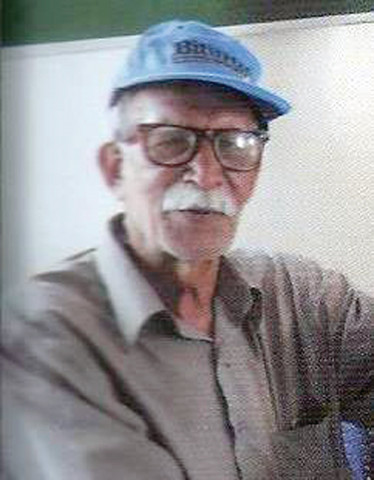The lone crusader on the forefront of environmental conservation
Khurshid Ali has been single-handedly publishing a magazine on wildlife, environment for 28 years

There are many unsung heroes in Pakistan - individuals who quietly spend their energy and time in pursuit of worthy causes, but are seldom noticed. What to say of patronage, when they are not even properly acknowledged by those whose work they take upon themselves, without caring for promises of profits? The result: their good work is consigned to the dustbin of history.
One such hero, who is at the risk of living his entire life unnoticed, is Khurshid Ali, the founder and editor of a magazine titled ‘Wildlife and Environment.’ He has been single-handedly running the magazine tirelessly for the past 28 years, but now, it seems, the exhaustion has started to take a toll on him.
In a recent phone conversation, he said: “Sahib, main ab bohut thak gaya hoon.” [Sahib, I am very tired now.]
The underlying sadness in his voice was disheartening. After campaigning for 28 years for people to roll up their sleeves and play an active role in saving the wildlife and environment, was the 74-year-old thinking of giving up?
Cometh the man
Ali’s appearance and attire are deceptive, not giving a hint of his years-long accomplishment. His frame is lanky and tall, his hair gray. Sporting a rich crop of white moustache, he goes often unnoticed as he alights from a public bus. Walking along Karachi’s crowded roads, he calls to mind a traveller treading across a desert.
More often than not, these voyages undertaken by Ali end at some official’s doorstep, where he personally delivers the latest issue of ‘Wildlife and Environment.’
But these short trips are part of a journey spanning many years, bringing Ali where he is today.
He was born in Delhi, to a family hailing from Amroha, in 1946. Later, the family migrated to Pakistan and lived in Saudabad, Malir, not far from the lush green Memon Goth, whose pristine environment made young Ali fall in love with nature.
Every now and then he would visit the little jungle there, sit under the shade of a tree or close to a water channel and listen to the symphony of birdsong.
From a friend who ran the popular monthly Science Digest, Ali learnt the nitty-gritty of publishing and felt that he too could bring out a magazine on wildlife and environment. As a test, he brought out a souvenir on the subject in 1991 and showed it to a renowned intellectual who praised his efforts.
That was all Ali needed.
Soon after, he applied to get his publication registered, and a few months later, he managed to publish the first issue of ‘Wildlife and Environment.’
There was no looking back now. The struggle began in full earnest. Along with the excitement came the realisation that neither the government nor the majority of people were keen on reading about conservation and the environment.
But the little support he got from a few was enough to keep him going.
Among his supporters are British Petroleum chief David Knox, Caltex chief GL Mahan, former Abbott managing director Kamran Mirza, former senator Javed Jabbar, late academic Anita Ghulam Ali, and Farid Veerani. He also fondly remembers the famous eye surgeon, late SMH Rizvi, who first showed him the Sindh Ibex in its habitat in the Kirthar Mountains.
Is the end nigh?
With little support and through sheer courage and hard work, Ali has been publishing his magazine every month. His grandson, Mirza Mohammad Salman, who has also contributed to this piece, has preserved its copies - a symbol of Ali’s achievement and struggle.
Though more or less a labour of love, with the founding editor living hand to mouth all his life, the publication has been consistent in highlighting environmental issues. What is more laudable, it has awakened a concern for the environment and conservation among school children.
The service has been delivered tirelessly, without any gains.
Ali is a hero and there is no doubt. But coming from him, he has started feeling tired. And there is little hope of another person devoting themselves to the cause as he has. If not recognised, acknowledged and carried forward, his work may fade into the unwritten chapters of history.
Published in The Express Tribune, Septe0mber 28th, 2020.



















COMMENTS
Comments are moderated and generally will be posted if they are on-topic and not abusive.
For more information, please see our Comments FAQ